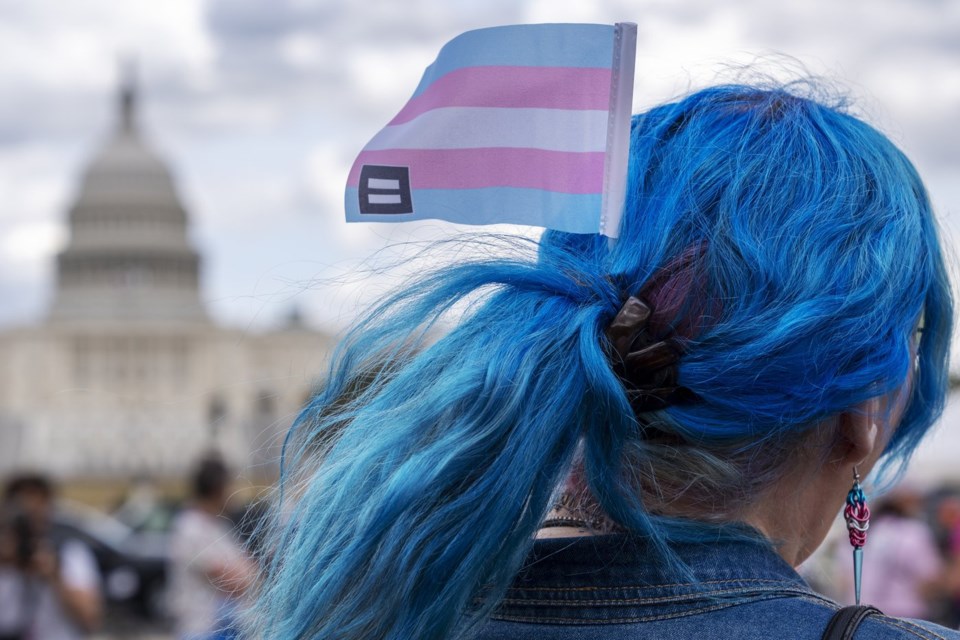The Trump administration is as the U.S. Department of Housing and Urban Development retreats from long-established fair-housing protections for transgender people.
In recent months, HUD has been targeting the Obama-era Equal Access Rule that expanded protections to include sexual orientation and gender identity. Also in the bull's-eye are fair-housing complaint investigations and federally funded homeless shelters.
“This administration wants to pretend trans people don’t exist,” said Hannah Adams, a senior staff attorney at the National Housing Law Project. “Whatever they’re doing is not in line with HUD’s supposed mission to provide a safety net for families that are struggling in this country.”
HUD said in a statement that it is upholding the landmark Fair Housing Act that guarantees equal access to housing for all Americans, as well as implementing what it called Trump’s executive order “restoring biological truth to the federal government.”
Here are key takeaways about how HUD is taking on the battle over transgender rights.
Defining LGBTQ+ rights in the Fair Housing Act
The Fair Housing Act identifies sex as one of seven protected classes for housing discrimination. But it wasn’t until the Obama administration established the Equal Access Rule in 2012 that those protections were extended to cover sexual orientation, gender identity and marital status.
In 2016, the rule was expanded to include transgender people seeking help at federally funded emergency shelters.
Four years later, a Supreme Court ruling established that a landmark civil rights law protects gay, lesbian and transgender people from discrimination in employment. Housing advocates and interpreted that as broader affirmation that LGBTQ+ people were also protected in the fair housing law.
Kim Johnson, public policy manager at the National Low Income Housing Coalition, said transgender people experience homelessness at a disproportionately higher rate despite being less than 1% of the general population. The spirit of the Fair Housing Act is to protect everyone who is vulnerable to discrimination, she said, even if the text of the law does not explicitly include gender identity as a protected class.
“We really need to ensure we’re upholding what the law means, and the fact is that transgender people are some of the most marginalized people in this country,” Johnson said.
HUD drops housing discrimination cases
Since President Donald Trump appointed , the Office of Fair Housing and Equal Opportunity has instructed staff to pause investigations of all gender identity discrimination cases, according to two HUD attorneys who spoke on condition of anonymity for fear of losing their jobs or benefits.
One said letters were then issued closing the cases for lack of jurisdiction.
HUD has not disclosed how many cases have been dropped. A National Fair Housing Alliance report identified at least 195 discrimination complaints involving gender identity in 2023, though HUD has not specified how many cases are still outstanding.
With changes to the Equal Access rule and other guidance still unclear, what happens now often depends on where a case is filed. In blue states with laws offering protections beyond federal law, HUD can direct tenants facing LGBTQ+ discrimination to state-run offices still taking cases, said a HUD employee who spoke on condition of anonymity to freely discuss the hot-button topic.
To Sasha Samberg-Champion, HUD deputy general counsel in the Biden administration and now special counsel for civil rights at the National Fair Housing Alliance, “There is no public policy justification for permitting discrimination in the housing market against people because they are transgender. None.”
Homeless shelters struggle to comply with Trump’s directives
Community leaders say they’re facing seemingly contradictory requirements in new HUD contracts with nonprofits that find permanent housing for the homeless and run shelters.
One section stipulates that nonprofits can’t promote “gender ideology” while at the same time another requires compliance with anti-discrimination law, according to a copy provided to the AP.
In Memphis, Tennessee, a nonprofit that provides emergency shelter for transgender people is looking to increase capacity because of the uncertainty.
Kayla Gore, executive director of My Sistah’s House, said it can do that because it doesn’t take federal funding. But other shelters are removing information from their websites about serving the LGBTQ+ community, fearful that federal funding will be stripped if they don’t, she said.
“People are confused,” Gore said. “They don’t know what to do because they want to protect their bottom line.”
Uncertain future for the Equal Access Rule
Soon after being sworn in as HUD secretary in February, Turner announced he was halting enforcement of the Equal Access Rule and quietly filed a proposal to revise the policy. HUD officials have declined to say what the proposed changes are.
In 2020, the first Trump administration unsuccessfully moved to relieve shelters of any obligation to accommodate transgender people.
With Trump back for a second term, advocates fear his administration will feel even more emboldened to go further and forbid shelters from accommodating gender identity altogether.
“Unfortunately, it’s making an already vulnerable class of people more vulnerable," said Seran Gee, an attorney for Advocates for Trans Equality.
"Our protections can’t be a pingpong ball that changes every four years.”
Sally Ho And Heather Hollingsworth, The Associated Press




